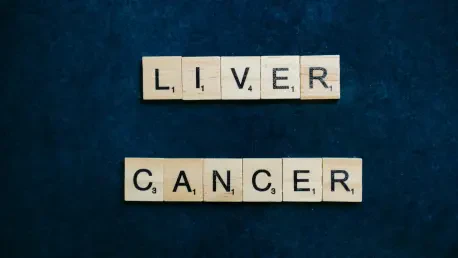I’m thrilled to sit down with Ivan Kairatov, a renowned biopharma expert with extensive experience in research and development, as well as a deep understanding of technological innovation in the industry. Today, we’re diving into the groundbreaking news about AstraZeneca’s Imfinzi and Imjudo regimen for liver cancer, recently recommended by NICE. Our conversation will explore the significance of this approval, the unique aspects of this dual immunotherapy treatment, its impact on patients with advanced liver cancer, and the broader context of advancements in oncology. Let’s get started.
Can you explain the importance of the recent NICE recommendation for AstraZeneca’s Imfinzi and Imjudo combination in treating liver cancer?
Absolutely. The NICE recommendation is a major milestone for AstraZeneca. It endorses the use of Imfinzi and Imjudo, together known as the STRIDE regimen, as a first-line treatment for adults with advanced or unresectable hepatocellular carcinoma (HCC) on the NHS in England and Wales. This is a game-changer because it’s the first dual immunotherapy approach to be approved by NICE for liver cancer, offering a new option where treatments have historically been limited. For patients, this means access to a therapy that could significantly improve survival outcomes, which is critical in a disease with such a poor prognosis at advanced stages.
What can you tell us about hepatocellular carcinoma, or HCC, and why it’s such a pressing health issue in the UK?
Hepatocellular carcinoma, or HCC, is the most common type of primary liver cancer, making up over 75% of cases. It often develops in the context of chronic liver disease, like cirrhosis from hepatitis or alcohol use. In the UK, liver cancer affects about 6,600 people annually, and with HCC being the dominant form, it’s a significant public health concern. The challenge is that around 70% of patients are diagnosed at an advanced stage, where the cancer is either unresectable or has spread, leaving few effective treatment options and a very poor outlook. That’s why innovative therapies like this are so desperately needed.
How does the STRIDE regimen stand out from previous treatments for liver cancer?
The STRIDE regimen, which combines Imfinzi and Imjudo, is unique because it’s a dual immunotherapy approach. Unlike older treatments like sorafenib, a tyrosine-kinase inhibitor that targets cancer cell growth, STRIDE harnesses the body’s immune system by using two drugs that work together to enhance the immune response against cancer cells. This is a first for liver cancer treatment under NICE approval, as it moves away from traditional single-agent therapies or chemotherapies that often had limited success in extending survival for advanced HCC patients. It represents a shift toward more personalized and immune-based strategies in oncology.
Can you walk us through the key findings from the HIMALAYA study that influenced NICE’s decision?
Certainly. The HIMALAYA study was pivotal in demonstrating the effectiveness of the STRIDE regimen. It showed a statistically significant improvement in overall survival compared to sorafenib, the previous standard of care. Specifically, the median overall survival for patients on STRIDE was 16.4 months, compared to 13.8 months for those on sorafenib. Even more striking were the long-term outcomes: at 18 months, 49% of STRIDE patients were still alive versus 42% on sorafenib, and by 36 months, 31% of STRIDE patients survived compared to just 20% on sorafenib. These numbers highlight a meaningful extension of life, especially for a disease where long-term survival has been elusive.
What has been the reaction from AstraZeneca to this NICE recommendation?
AstraZeneca has expressed immense pride in this achievement. The president of their UK division emphasized that this is a significant step forward for people with advanced liver cancer, marking the first time this kind of immunotherapy combination is available to these patients. The company is particularly excited about the data showing a notable increase in the number of patients living five years or longer, which underscores their commitment to improving long-term survival outcomes through innovative therapies. It’s clear they see this as a cornerstone in their oncology portfolio.
How have patient advocacy groups responded to this development?
Patient advocacy groups have welcomed the NICE recommendation with open arms. For instance, representatives from the British Liver Trust have highlighted the rising incidence of liver cancer and the limited treatment options patients often face. They view this decision as bringing a vital new choice to those with advanced liver cancer, offering hope where there was previously very little. Their enthusiasm reflects the urgent need for effective therapies in this space and the real-world impact this could have on patients’ lives.
How does this achievement fit into the broader landscape of AstraZeneca’s recent advancements in oncology?
This NICE recommendation for the STRIDE regimen is part of a string of recent successes for AstraZeneca in oncology. Just a few months ago, they received NICE approval for Truqap, an AKT inhibitor, as part of a combination treatment for advanced breast cancer. Additionally, earlier this year, they secured recommendations for Imfinzi and Tagrisso in lung cancer treatments. These approvals showcase AstraZeneca’s robust pipeline and their focus on addressing unmet needs across various cancer types, positioning them as a leader in innovative cancer care.
What is your forecast for the future of immunotherapy in treating cancers like HCC?
I’m very optimistic about the future of immunotherapy for cancers like HCC. We’re seeing a paradigm shift where treatments are becoming more targeted and personalized, leveraging the immune system in ways we couldn’t have imagined a decade ago. Dual immunotherapies like STRIDE are just the beginning—I expect we’ll see further combinations, perhaps with other novel agents or even personalized vaccines, to enhance efficacy. The challenge will be improving early diagnosis to apply these therapies before the disease progresses too far, but with continued investment in research and technology, I believe immunotherapy will play a central role in transforming outcomes for liver cancer and beyond.









